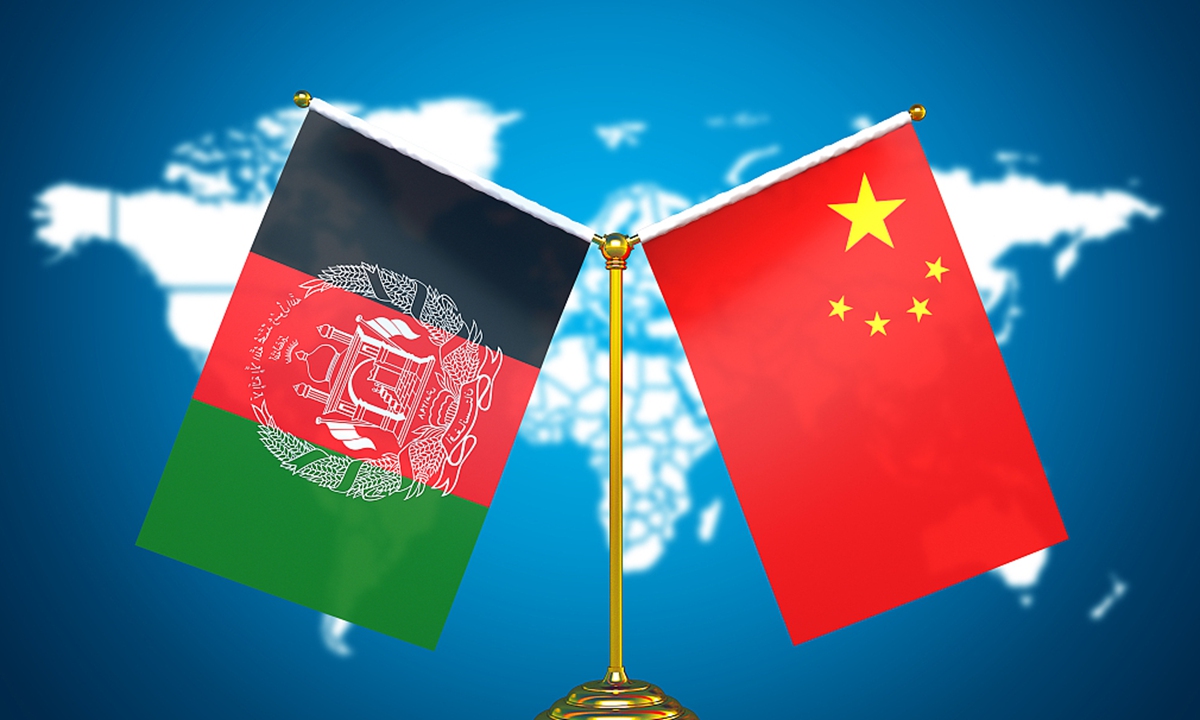By Global TimesPublished: Jul 29, 2021

Photo:VCGChinese State Councilor and Foreign Minister Wang Yi on Wednesday met with the visiting delegation led by head of the Afghan Taliban political committee Mullah Abdul Ghani Baradar in North China's Tianjin Municipality, according to China's Foreign Ministry.
During the meeting, Wang said that the hasty withdrawal of the US and NATO troops from Afghanistan actually marks the failure of the US policy toward Afghanistan. The Afghan people now have an important opportunity to achieve national stability and development.
Over past decades, unsatisfying development of economy and standard of living has contributed to the continuing instability in the country. "Afghanistan's economy is shaped by fragility and aid dependence," described the World Bank. Its GDP ranked 112 in 2020 across the world, with employment concentrated in low-productivity agriculture.
Economic reconstruction and better integration to the regional economic development are crucial for the country to improve people's livelihood and pursue stability in the long run; and it will ultimately benefit the overall peace and development of the whole region. In this sense, China together with Afghanistan's other neighboring states could join hands to facilitate the economic reconstruction based on each one's advantages.
China is Afghanistan's largest neighbor, and has always respected Afghanistan's sovereignty, independence and territorial integrity, adhered to non-interference in Afghanistan's internal affairs and pursued a friendly policy toward the entire Afghan people, Wang stressed. The Afghan Taliban stated in Tianjin that it hopes that China will be more involved in Afghanistan's peace and reconciliation process and play a bigger role in its future reconstruction and economic development.
In fact, China and Afghanistan have developed a foundation for economic cooperation. Not only that Afghanistan is an important partner under the Belt and Road Initiative (BRI), it is also an observer state in the Shanghai Cooperation Organisation (SCO). Both frameworks have been offering increasingly strong facilitation for the development of related economies.
Previously, the foreign ministers of China, Pakistan and Afghanistan held a dialogue in September 2019. They reportedly agreed that the three countries should push the extension of the China-Pakistan Economic Corridor (CPEC), an important pilot project of the BRI, to Afghanistan. Based on the principle of mutual benefit, it would help the country further accelerate its peaceful reconstruction. The CPEC has made significant and positive progress in such areas as transportation infrastructure, energy, ports and industrial parks.
There's no need to further interpret the significance for Afghanistan to improve its infrastructure, and China's advantages in infrastructure construction and in industrial development. Moreover, China is an important driver of the global recovery during the post-COVID era, generating huge growth momentum for the global economy, especially neighboring regions.
Compared to the West's military and political intervene, economic cooperation based on mutual respect has absolute advantages for the stability and growth of the country and the region; and more importantly, it in lines with the essential interest of broad Afghan people.
No comments:
Post a Comment